At NDSU, Alyssa Hodges ’21, ’23, ’26 discovered a community ready to support her in ways she hadn’t expected.
Read MoreDelivering Patient-Centered Care in Every Corner of the State
NDSU is educating innovative health care professionals to meet the needs of North Dakota patients in an industry under pressure.
Story by Micaela Gerhardt | March 21, 2023

Rural hospitals across the U.S., like the Heart of America Medical Center (HAMC) in Rugby, North Dakota, are beacons to people in the surrounding areas. The HAMC, for example, serves more than 10,000 patients from communities like Towner, Leeds, and the Turtle Mountain Reservation, offering a full-time surgeon and robust therapy department among other essential health care services that are otherwise 30 or more miles away.
Since the pandemic, many hospitals — rural or otherwise — have been stretched to their limits, burdened by staff shortages, patient overload, and burnout. Thanks to a rural development loan from the U.S. Department of Agriculture, the HAMC is upgrading to a brand-new facility that will create greater access to quality health care in the region — but the Rugby community is not untouched by the challenges facing the health care industry across the country.
“It’s imperative to highlight the absolute need for health professionals in North Dakota,” HAMC CEO Erik Christenson ’97, ’99 said. “If we are going to continue to have people living in our rural areas, we’re going to have to have health care. You remove health care, and rural North Dakota will disappear — that’s a part of America we can’t lose. We need young adults who are willing to step in and be the health care leaders in these rural areas for the next generations.”
In Rugby, the greatest shortage may be in swing-beds, or skilled nursing care, for recovering patients in long-term or transitional care, Erik says, but the community’s nursing homes are also short-staffed; dietary and housekeeping workers are in short supply; and there are not always enough beds available to stabilize and treat patients who are experiencing mental health issues.
“We’re seeing that with an aging population, baby boomers are starting to utilize health care more,” Erik said. “There aren’t enough services available, and the really limiting factor is staff.”
NDSU is meeting this need head-on. Because of philanthropic support from NDSU alumni and friends, the University has the top-tier technology and infrastructure needed to prepare the next generation of health care leaders. Benefactors united to establish the entirely privately funded Aldevron Tower, a $28 million teaching and research facility. This state-of-the-art home for health professions opened its doors in the spring of 2020, just as the pandemic began to highlight an urgent need for health care professionals and scientific innovation.
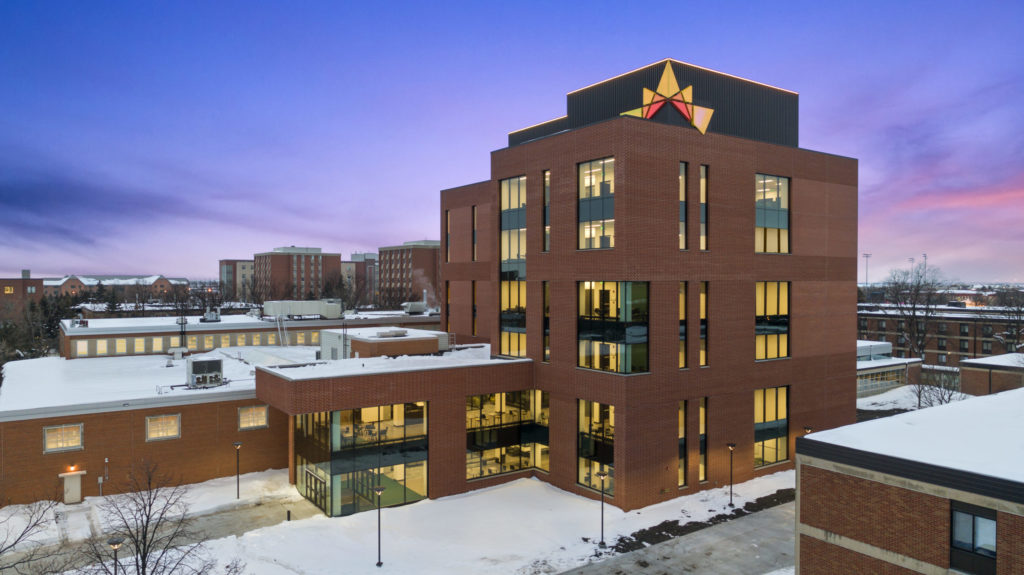
Aldevron Tower is designed to make the NDSU educational experience as similar to real-world, professional environments as possible. Students in pharmacy, nursing, public health, medical laboratory science, radiologic sciences, and respiratory care study and perform in high-tech laboratories, simulation suites, fully equipped patient rooms, and a concept pharmacy that all include the exact equipment students will use when working with real patients. The 21st-century hands-on learning spaces in Aldevron Tower are elevating education and the future of patient care across the state.
“It’s just this domino effect,” Elizabeth Skoy ’05, ’07, associate professor of pharmacy and director of the Center for Collaboration and Advancement in Pharmacy (CAP), said of how Aldevron Tower impacts the citizens of North Dakota. “You recruit students to our land-grant institution, and you teach them in a space that allows them to have the best educational experience. Then, you’re able to teach them to their potential. You instill that thirst or expectation for innovation and practicing at the top of their license to benefit the patients of North Dakota.”
Creating a hub for all the health profession disciplines in Aldevron Tower also lends to more interprofessional practice; faculty share expertise between disciplines and students learn to care for patients as part of a larger health care team. This type of collaboration is essential for their future careers and for patient interactions.
“The typical patient receives care from a variety of different clinicians. A focus on team-based care, combined with patient-centered care, allows our graduates to think beyond the normal ‘silos’ of their discipline. This allows them to identify new opportunities and best practices to improve patient care,” Daniel Friesner, senior associate dean of the College of Health Professions, said.
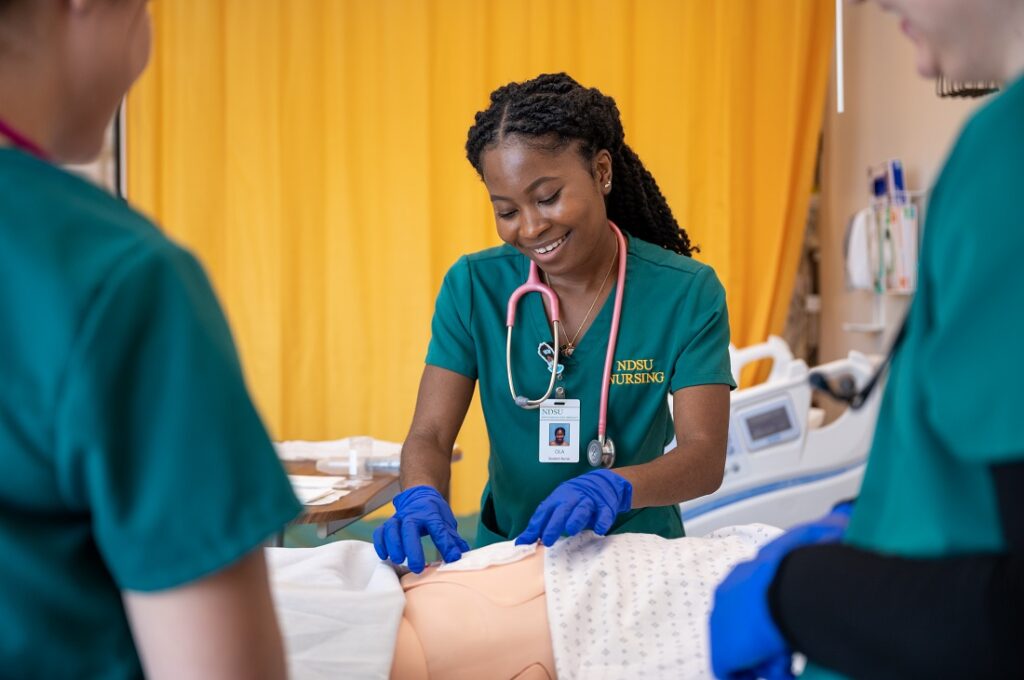
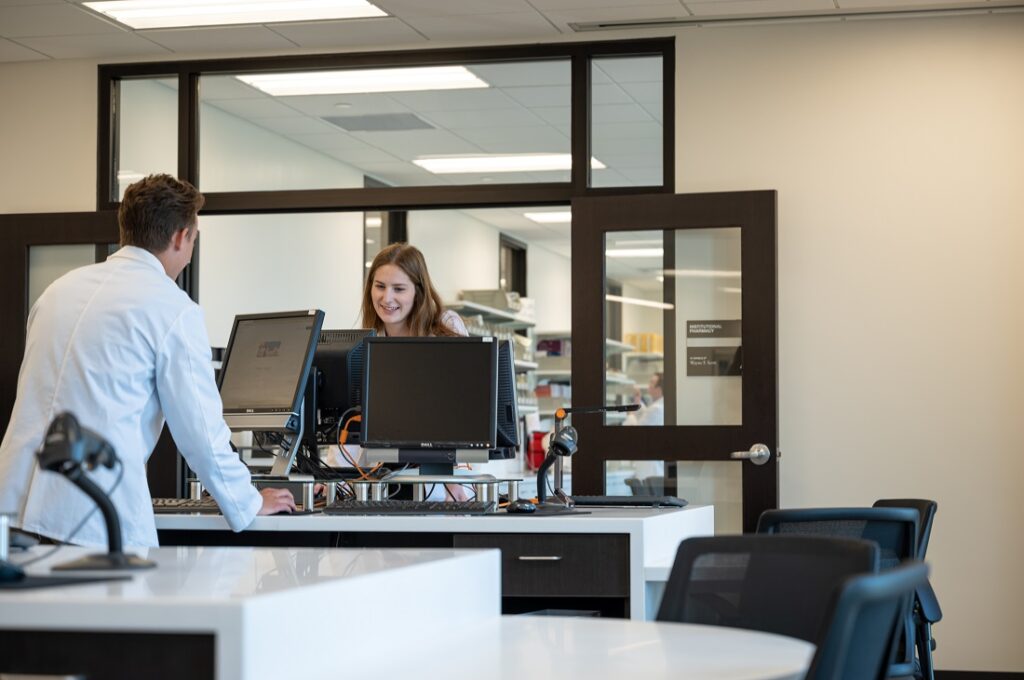
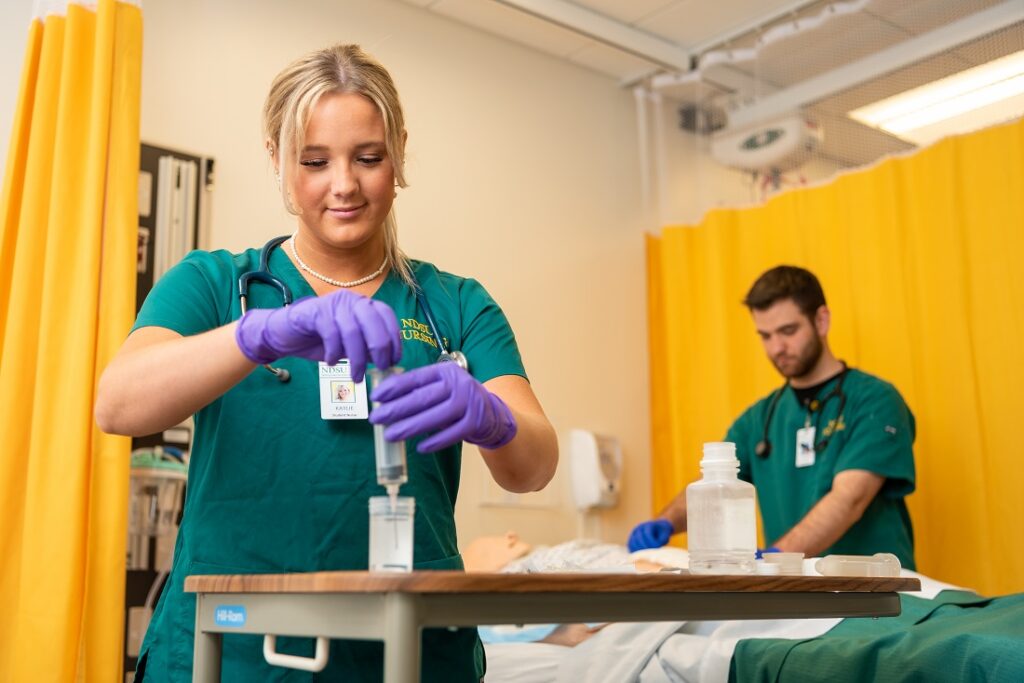
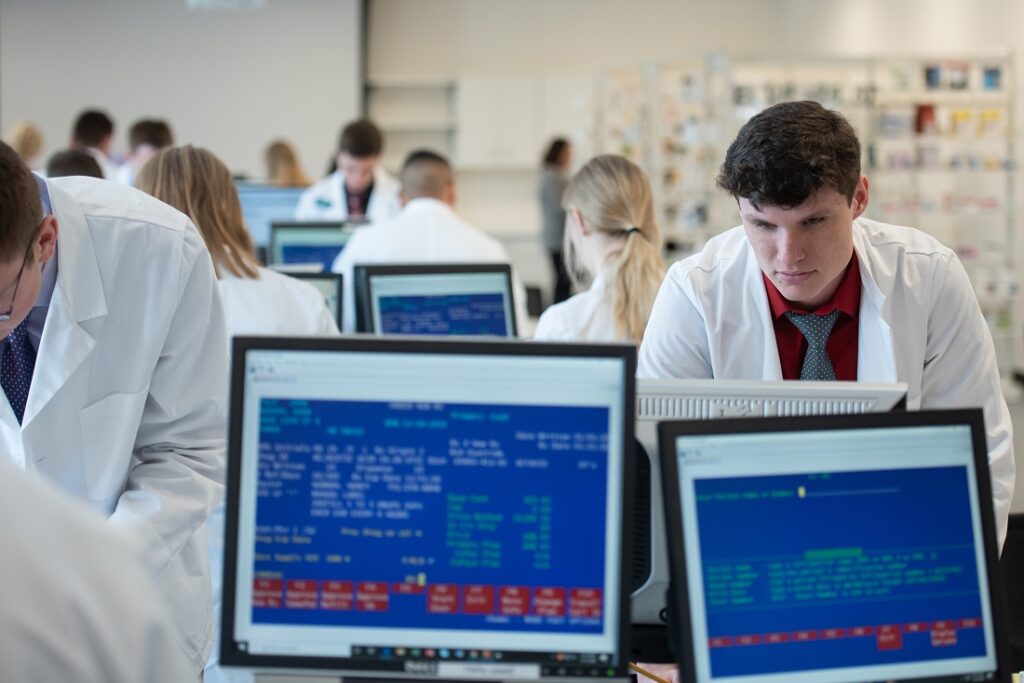
NDSU health professions students work and learn in Aldevron Tower’s nursing skills lab and concept pharmacy.
Another crucial aspect of the future of health care in North Dakota is retaining health professionals within the state. The College of Health Professions is actively involved in recruiting the next generation of clinicians in North Dakota. Faculty in the pharmacy and nursing programs visit high schools across the state to promote health professions and NDSU’s academic programs. On campus, students interact with employers in North Dakota through career fairs and clinical partnerships.
In NDSU’s traditional pre-licensure Bachelor of Science in nursing program, more than 95% of clinical site experiences are offered in-state, Daniel says. In the pharmacy program, more than 60% of clinical experiences are in North Dakota, and many students complete a five-week rotation in a rural area, which helps foster a close connection with patients in these communities. Additionally, NDSU’s Master of Public Health (MPH) program is strongly connected with the North Dakota Department of Health (NDDoH), and many of NDSU’s MPH students gain valuable work and practical experiences through that alliance.
“Everything we do from our teaching to serving our profession, we try to embed NDSU’s land-grant mission in. What can make our state better? How can we better the lives of our patients and alumni who are practicing in the state?” Elizabeth said. “That’s where the University is really critical: having a program that prepares our workforce to stay here [in-state] and preparing our students to be innovative so that all of our patients in North Dakota have access to the health care they need and deserve.”
Meet Front-line Workers Who Are Making a Difference in North Dakota Communities
A spirit of innovation is a hallmark of NDSU’s health professions programming, a standard for progress and professional growth that is shared by current health professions alumni who are practicing in every corner of the state. When graduates leave NDSU’s walls, they know they’re not done learning.
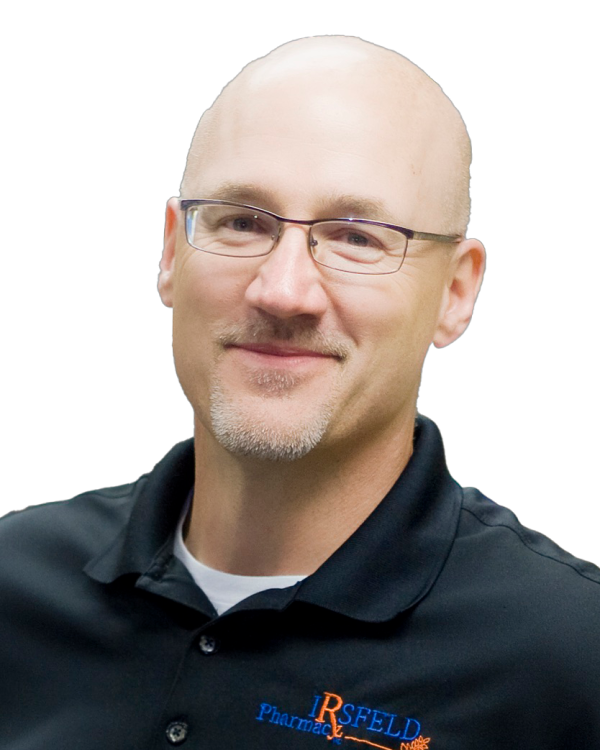
On the western side of the state, in Dickinson, North Dakota, Steve Irsfeld ’88 is the owner and pharmacist-in-charge at Irsfeld Pharmacy. Guided by a growth mindset he exercised as an NDSU pharmacy student, Steve began learning about dietary supplements and incorporating them into his pharmaceutical practice. His goal is to provide patients and community members with multiple tools to improve their health and well-being, so he also writes weekly columns for The Dickinson Press and hosts a podcast called “The Optimal You,” where he discusses different health-related topics and shares insights into achieving better health.
“Pharmacists look at ourselves as problem-solvers,” Steve said. “People don’t necessarily come to us because they feel good; they come to us because they’re sick and they need help, and if we can try and figure out what’s going on with them and get them to a better place, that’s our goal.”
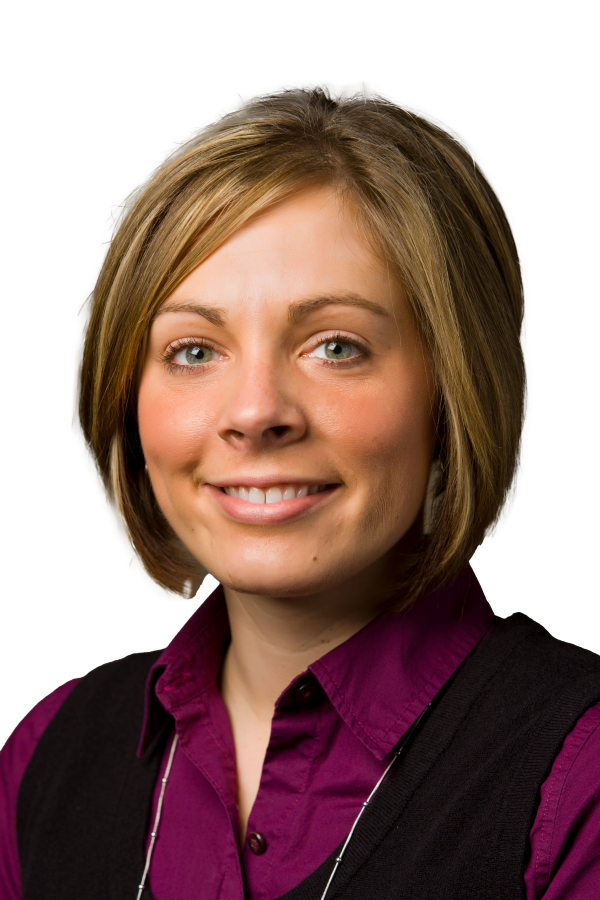
Fifty miles south of NDSU, in Wahpeton, North Dakota, Elisha Anderson ’10 is a nurse practitioner for Essentia Health and the medical director for Hankinson, North Dakota, and Wahpeton clinics. She relies on the critical thinking skills she developed as an NDSU student to work her way through the complex problems facing patients and the industry as she provides care.
“NDSU gave me the building blocks to be able to take information and critically think my way through challenging situations, from understanding what’s happening in the human body so that I can then take my medical knowledge and apply that to the pathophysiology of the patient to give them the best quality care, or using that knowledge as I lead others through the ever-changing health care world,” Elisha said. “Still today, when I take students in clinical rotations, it’s evident that NDSU has upheld a high standard.”
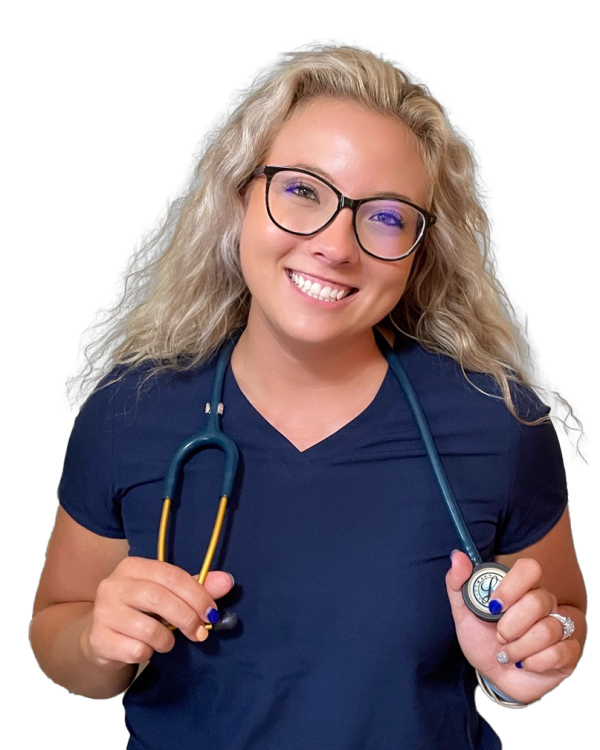
In Bismarck, North Dakota, Olivia Holly ’21 is an emergency department registered nurse at the Sanford Emergency and Trauma Center. NDSU’s nursing program is offered at two sites, one on the main campus in Fargo and the other at Sanford Health in Bismarck. Olivia, who completed her degree through the Bismarck site, says she approaches nursing with a beginner’s mindset, continually asking questions and seeking to advance her knowledge and skills so that she is equipped to care for people during their most critical time.
Olivia specifically credits NDSU professors Sara Berger and Jill Johnson for always pushing her to go the extra mile. During ICU clinicals with Jill, for example, Olivia said students had to give in-depth explanations for all of their choices related to patient care, and they needed to be prepared for further questioning.
“If you wrote a med down on your list that you were going to give a patient, you better know what it is, why you’re giving it, and any adverse reactions that could potentially happen. Even if you had this long explanation for what you were doing and why, there was always more that could be added on top of it,” Olivia said. “I think I always had a really good understanding of the foundations, but I loved when the professors at clinicals would push me one step further so that I could be better.”
Share This Story
Related Stories
Glad You’re Here
NDSU students bring companionship and events to residents in memory care at Fargo’s Touchmark retirement community.
Read More
